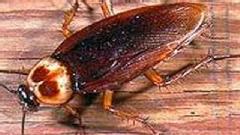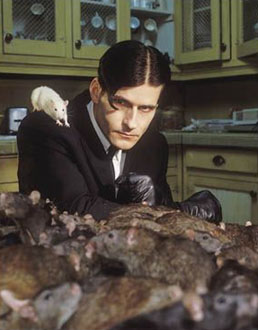Nathan Hale School in New Haven had an inspection in March that found chicken was being served to children at a temperature that can carry bacteria. Inspectors did not go back to the school to re-inspect until December, when they found the same problem.
In October 2010, local health inspectors in Meriden found rodent droppings in the cafeteria of Maloney High School, as well as dirty cabinets and other health .jpg) violations. Inspectors didn’t go back last year to check to see if the problems were remedied.
violations. Inspectors didn’t go back last year to check to see if the problems were remedied.
In Stamford last year, nine of 32 schools did not have their cafeterias inspected, with the remaining schools inspected fewer than the three times a year required under state regulations.
Those are the findings of a team of journalists and interns reporting for the New Haven Independent.
Paul Kowalski, New Haven’s environmental health director, said, “There is no way we are meeting the state mandate on inspections. I have three sanitarians and over 1,100 food establishments to inspect.”
A review of more than 1,700 inspection reports from 103 cities and towns in 2010 found that many local health agencies, responsible for ensuring that school cafeterias are safely preparing and serving food to children, are not meeting the state Public Health Code on mandated annual inspections. Of the 38 health agencies overseeing those towns, at least half were not meeting the state requirement, the review shows.
In addition to failing to meet the required number of inspections, the review found that timely re-inspections of cafeterias cited for violations were rare.

 the kitchen, the cafeteria or both, but a few schools had bugs in a storage room or bathrooms near the cafeteria.
the kitchen, the cafeteria or both, but a few schools had bugs in a storage room or bathrooms near the cafeteria. observing workers touching food with their bare hands and storing perishable items at unsafe temperatures.
observing workers touching food with their bare hands and storing perishable items at unsafe temperatures..jpg) "to discuss their grievances and the university’s plans for addressing them."
"to discuss their grievances and the university’s plans for addressing them." They have lots of people watching them."
They have lots of people watching them." percent were out of compliance.
percent were out of compliance. customers’ health at risk.
customers’ health at risk. The New York Times today
The New York Times today.jpg) One parent likened the American cheese between two dry slices of plain white bread to "a prison meal."
One parent likened the American cheese between two dry slices of plain white bread to "a prison meal." Ignore it?
Ignore it?